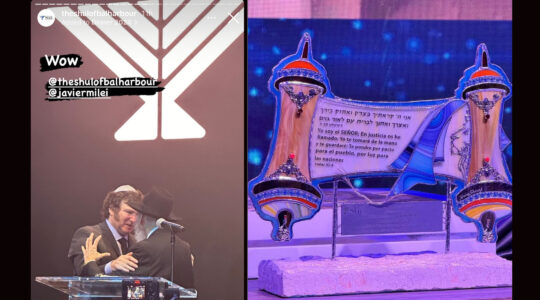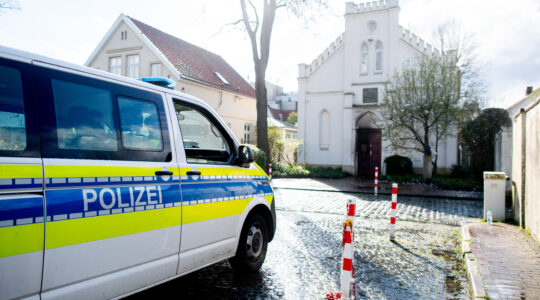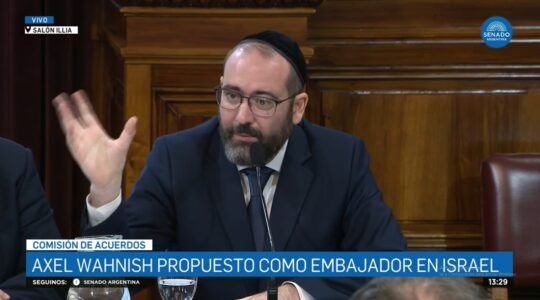(JTA) — An Amsterdam project inviting visitors to homes that once belonged to Jewish Holocaust victims has spread to eight Dutch cities.
The 2014 Open Jewish Houses initiative is scheduled to be held on May 3-5, the 69th anniversary of the liberation of The Netherlands from Nazi occupation, and will encompass dozens of buildings in the Dutch capital as well as Rotterdam, The Hague, Haarlem and four other cities, the news site museumkijker.nl reported earlier this month.
Organized by Jewish Historical Museum and several partner organizations, the project, first launched two years ago, makes it possible for visitors to enter some of the homes of the approximately 104,000 Dutch Jews who were murdered during the Holocaust. Some houses will feature lectures by survivors who lived in the homes before the Nazi invasion in 1940.
“This extraordinary initiative has generated a lot of interest, including among young people,” said Ronny Naftaniel, co-founder of Jewish Heritage in The Hague, or Joods Erfgoed Den Haag, a not-for-profit organization that last year brought the project to The Hague for the first time.
“The curiosity stems from people’s realization of just how significant the Jewish contribution has been to the cultural life in the Netherlands,” he told JTA.
People who open their houses to the general public, Naftaniel said, “do it mostly out of respect for the victims.”
Some residents hang posters on their front doors with the names of the Jews who once lived in the homes and the words “Never forget.” Open houses are listed on the initiative’s official website, www.openjoodsehuizen.nl, and its smartphone application.
Separately, the municipality of Utrecht approved the erection of a monument to Holocaust survivors near the city’s railway museum, despite the museum’s objection.
Designed by the artist Amiran Djanashvili, the monument will consist of a steel memorial wall engraved with the names of the city’s 1,224 Holocaust victims and a large shofar.
Museum Director Paul Vlijmen objected to local activists’ plan to erect the monument because he thought the museum devoted sufficient attention to the deportation of Jews to concentration camps.





